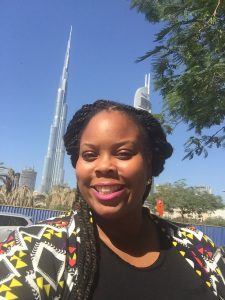I have taught Science for 6 years in Canada, but nothing challenged me more than when I came to the United Arab Emirates to teach Science at the Middle School level. In Driver et al.’s book, Children’s Ideas and the Learning of Science, it is stated that people construct their own meanings and personal ideas influence the manner in which information is acquired. This is further made difficult if the language in which the Science information is being taught is not the mother tongue of the student. In my case, I sometimes feel like I am doing my students a disservice because so much gets lost in translation. Earlier this year, I was teaching students about plant and animal cells and students were lost because they had no idea what a cell was. I showed them videos and we looked through textbooks, but I knew at the end of the unit that there were still many students that had no clue what I was talking about. They could not fathom that our blood which looks liquid to the naked eye could have red blood cells as a component.
Like Heather and her classmates, my student’s posses so many misconceptions. These stem from information they have “heard” throughout their lives, events that they have observed and even various forms of media. I read, Exploring the role of a discrepant event in changing the conceptions of evaporation and boiling in elementary school students, this paper stated that many causes and solutions to misconceptions among children in elementary school science problems have been proposed; however, in the study, it is suggested that the traditional examples used to enhance student understanding have instead caused misconceptions because of their limited scope. They suggested that to explain abstract scientific concepts, concrete examples are generally presented, but it is difficult to represent all cases, and thus, only typical cases are selected. However, these traditional solutions can contribute to the students’ difficulties in learning. This may ne an answer to reducing misconceptions in the science classroom.
Driver, R., Guesne, E., & Tiberghien, A. (1985). Children’s ideas in science. Milton Keynes [Buckinghamshire];Philadelphia;: Open University Press.
Paik, S., & Paik, S. (2015). Chemistry education research and practice: Exploring the role of a discrepant event in changing the conceptions of evaporation and boiling in elementary school students Department of Chemistry, University of Ioannina. doi:10.1039/c5rp00068h
